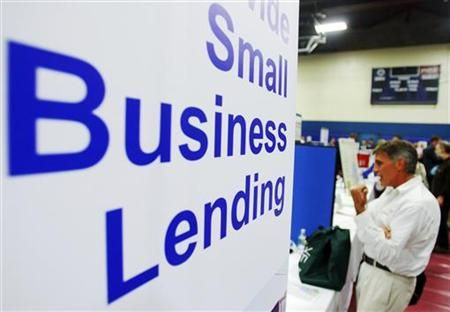Small Businesses Are The Suckers In Washington

As November closes each year, Americans celebrate Small Business Saturday. This year marks the 10th time we’ll be encouraged to patronize small brick and mortar retailers across this great land. It’s just one reminder that American free enterprise is very much built on small business.
Companies with fewer than 100 employees represent more than 98% of the 5.6 million employer firms in the U.S. and more than one-third of private-sector payroll, according to the Small Business & Entrepreneurship Council.
Yet those small businesses are on the sidelines of a system that caters to the very small percentage of wealthy businesses, individuals, unions, and special interests who participate in the Washington, D.C., pay-to-play system.
There’s an old adage at the poker table—if you look around the table and can’t tell who the sucker is, you’re probably it.
Picture Washington, D.C., as one big swampy poker table where $5.7 billion was spent on elections in the 2018 cycle. Those spenders are getting what they want, but who is the sucker that’s being played?
Is the sucker a company like Pfizer, the pharmaceutical giant who spent over $11 million on lobbying in 2018? How about BP, whose annual lobby budget is $53 million? Or could it be the Wall Street banks, who are credited with influencing lawmakers to the tune of $1.9 billion in the 2017-2018 election cycle alone? Maybe it’s the teachers' unions? The trial lawyers?
No, it’s unlikely that the wealthy companies and donors that have impressive “influence budgets” are the suckers in this equation. They are getting a fabulous return on their money spent — a return of $760, on average, for every dollar spent, according to a multiyear study by the nonpartisan nonprofit Sunlight Foundation. And there are no longer any limits to how much they can invest.
The 2010 Citizens United ruling and the 2014 McCutcheon v. FEC Supreme Court decisions, among others, have unleashed torrents of money into American politics. Super PACs, which do not “coordinate” with campaigns—a laughably easy standard to meet—can receive and spend unlimited amounts. Previous caps on system-wide campaign contributions are also gone.
Running a small business requires stepping up to responsibility. But the ability of entrepreneurs to compete in the marketplace or attract and retain employees is being systematically undermined because they no longer have a seat at the table in policy discussions. Small companies may make up 98% of the U.S. employers, but they don’t have lobbyists, and they don’t give to Super PACs, so they are cut out of the real decision-making about healthcare, prescription drug costs, gun-safe schools, teacher accountability, tariff exemptions, tax carveouts or the stability of our financial system. The fact is, if you own a small business without a lobbying budget, you are the sucker in the D.C. swamp. And your employees are as well.
Small businesses are effectively “the masses.” They are forced to take the policy that comes out of Washington or their own state capitals. Like price-takers buying a commodity, most smaller businesses in America are “policy-takers.” And that would be fine, if only everyone else was, too, and if the playing field was level.
Instead, the wishes of small business owners and the majority of their employees are effectively ignored. A Gilens and Page study concluded that average citizens’ preferences for policy had a near-zero impact on the likelihood of its adoption by Congress. A bill with nearly 100% of public support had insignificantly greater likelihood of success than one with zero public support.
On the other hand, a law’s passage turns out to be highly correlated with “Economic Elites’ Preferences” and “Interest Group Alignments.”
So sure, employees may want lower prescription drug costs; they may agree on wanting climate change policy; they may want something done about the epidemic of gun violence. They want accountable teachers in their public schools. They want big corporations and Wall Street banks paying their fair share of taxes. The list goes on.
These issues enjoy strong majority support for change. Yet nothing happens in Washington. Nothing happens in our 50 state capitals.
Instead, Congress is beholden to industries like Big Pharma, and statehouse lawmakers are, too. Then the small businesses and their employees are left with ridiculous prescription drug costs and stratospheric annual premium hikes.
Big Oil has a lot of state and federal lawmakers on its payroll. The result? Drill baby, drill! But consideration and action on climate change? Sorry. We can’t even have an open debate.
Ditto the teachers' unions, Wall Street banks, the gun lobby, and many others. Those special interests get their pet policies – or hold the status quo — and you and your employees get stuck holding the bag.
Those special interests are all feeding at the trough in our legally corrupt system—gobbling up the favorable laws and loopholes that their “owned” lawmakers serve up. Lawmakers and their staffs take those phone calls, they welcome that suggested wording for a law or a regulation.
And your lawmaker is on the other side of that trough—reeling in campaign donations and Super PAC money hand over fist. Re-election becomes so much easier. It becomes an ever-escalating system that demands more and more cash and less and less responsiveness to anyone but special interests.
However, small business owners and regular Americans are not powerless in this system. We are granted the ultimate power to change the system. We can pass a constitutional amendment to overturn Citizens United and end unlimited political spending. Efforts by citizens across the political spectrum already have resulted in 20 states passing legislation calling for the 28th Amendment to do just that. If the effort succeeds, the 98% of American employers who run a small business won't be suckers anymore.
John E. Palmer is Principal of Hanover Partners and a Business for American Promise Bay Area Council Member
© Copyright IBTimes 2024. All rights reserved.





















